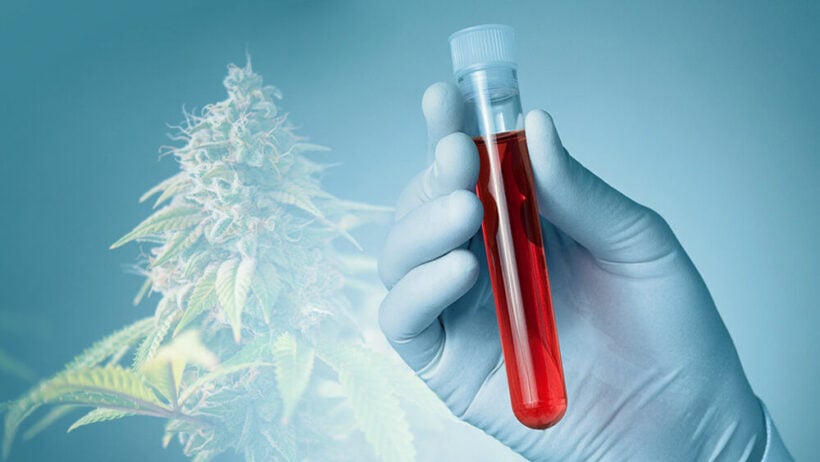Can I donate blood in Thailand if I smoke cannabis?

Thai Red Cross Society is in constant need of blood donations to save lives. Since Thailand legalised cannabis in June, more people in the kingdom are smoking the plant than ever before. But does smoking “gancha” impact your eligibility to donate blood?
Patients need blood transfusions for: surgery, serious injuries from car crashes, anaemia, blood disorders, cancer treatments, complicated child births and more medical emergencies.
The short answer is, cannabis smokers are allowed to donate blood in Thailand, if they follow the Red Cross’ guidelines and meet the basic blood donor requirements. There is no law forbidding cannabis smokers from donating blood.
Thai Red Cross Society has put some rules in place to help cannabis smokers donate blood safely. The rules aim to protect both donor and recipient…
Rules for cannabis-smoking blood donors in Thailand
- Irregular cannabis smokers: people who smoke cannabis now and again (less than once a week) can donate blood, but they should stop smoking cannabis at least 24 hours before donating.
- Regular cannabis smokers: people who smoke cannabis regularly (more than once a week) can donate blood, but should stop smoking and consuming cannabis at least one week before donating.
- If you eat edibles: people who digest cannabis can donate blood but must stop eating edibles at least one year before donating.
Cannabis smokers must also meet the basic blood donor eligibility criteria…
Blood donor requirements in Thailand
- You must weigh at least 45 kilograms and be in good health.
- You must be aged between 17 and 70 years old. First-time donors cannot be older than 55 years old.
- Non-Thais must have been living in the kingdom for at least six months before they can donate blood.
- Donors must have enough rest and at least six hours of sleep the night before donating.
- People who have had diarrhea or stomach problems within the past seven days cannot donate blood.
- People with a cold or fever cannot donate blood.
- Drug users who inject any type of drug cannot donate blood.
- Pregnant women, new mothers, breastfeeding mothers and women who have had a miscarriage in the past six months cannot give blood.
- Donors’ weight must be stable.
- People who have taken aspirin, muscle relaxants or painkillers in the past three months are not allowed to give blood.
- Donors must not have asthma, skin infections, tuberculosis (TB) or any allergies.
- Anyone with a history of heart disease, liver disease, lung disease, blood disease, cancer, difficulty stopping bleeding, hepatitis B virus or hepatitis C virus cannot donate blood.
- Donors cannot take antibiotics seven days before donating.
- Donors should not undergo teeth extraction, filling, scraping, tartar or root canal treatment in the three days before donating.
- People who have undergone major surgery cannot donate blood for six months.
- People who have undergone small surgeries cannot donate blood for seven days after their surgery.
- If you have been tattooed in the past three years you cannot donate blood.
- If the donor has received blood from a donor, they should refrain from donating blood for one year.
- People who lived in the UK between 1980-1996 cannot donate blood because of the possible risk of transmitting the human form of bovine spongiform encephalopathy, known as variant Cruetzfeldt-Jakob disease (CJD).
Three reasons you should donate blood in Thailand
1) Development of new blood cells
Blood can be donated every three months. When we donate blood, our bone marrow produces new blood cells to replace the lost blood so that we maintain the same volume of blood. Research reveals that the replenishment process boosts our overall health.
2) Reduced risk of heart disease
Donating blood at least once a year may lower the chance of having a heart attack by 88%, according to a study published in the American Journal of Epidemiology.
3) Free blood test
The first time you donate blood, you’ll receive a health check-up. Your pulse, blood pressure and hemoglobin levels will be tested. A medical examiner will run blood tests to check your blood type and also test for HIV, hepatitis B, hepatitis C and syphilis.
Read: From regulation to cannabis delivery, here’s what you need to know about cannabis in Thailand
Latest Thailand News
Follow The Thaiger on Google News:


























